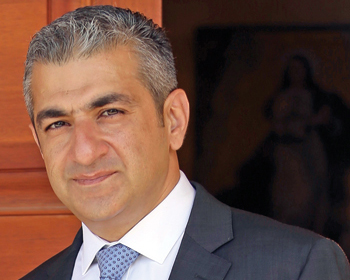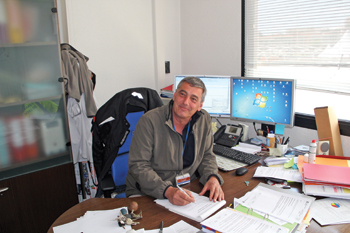
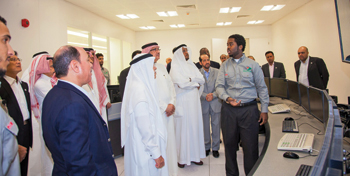 Yasref ... conducting emergency drills
Yasref ... conducting emergency drills
WHILE Saudi Aramco is building assets and broadening its portfolio, it has not ignored capacity building that is so essential to the company’s successful transformation.
As Saudi Aramco expands its business and geographical reach, the need to strengthen the talent pipeline and develop and retain a world-class workforce has never been more important.
This is especially true in light of the shift in the company’s age demographic and the challenges it poses to bridge the knowledge gap across employee generations.
Programmes are in place to enhance workforce planning, recruitment and retention.
At the same time, Saudi Aramco is continuing to build its training and development efforts to provide its people with the right learning opportunities.
Offering its employees challenging career opportunities to enrich their learning will allow them to grow with the company.
OPERATIONAL HEALTH AND SAFETY
The hydrocarbon industry has inherent risks. Yet from its inception 80 years ago, the company has worked to embed safety as a core value in everything it does.
A culture of safety is supported inside the company and promoted in its communities through a variety of initiatives that tackle its society’s most critical safety challenges. This safety culture will become even more important over time as Saudi Aramco increases the scale of its operations and ventures into new businesses such as petrochemicals and unconventional gas.
 |
Aramco ... nurturing talent |
Saudi Aramco was involved in several major safety initiatives during 2013 to both strengthen its safety culture and enhance safety across its operations, including:
Assessing and controlling risks: Risk-based safety management approaches identify hazards, analyse the risks associated with the hazards in terms of both consequences and likelihood, and assess measures to control the risks. The application of risk management principles, especially during the current period of expansion, can more effectively determine how to allocate resources to eliminate, mitigate or control risks.
Improving safety standards, inspections and audits: The company introduced several new guides, standards and requirements related to safety management. A number of comprehensive risk-based inspections in line with industry recommended practices were conducted to ensure company operations meet those evolving standards.
Conducting safety training and education: The company’s Safety Leadership and World-Class Safety Workshops equip management with the skills to be visible safety leaders and provide supervisors with practical tools to elevate safety in their operating areas to world-class levels.
Recognising safety achievements: The company’s Exceptional Safety Achievement Recognition Programme recognised employees in 2013 for their contributions toward the development of proactive safety initiatives that made a positive impact on safety within their organisations and the company.
As a result of these and numerous other safety initiatives, Aramco’s lost-time injury (LTI) rate in 2013 dropped by 18.2 per cent from 2012 – and 25 per cent from 2011 – to 0.09 per 200,000 work hours.
The second phase of PetroRabigh has achieved 6 million accident-free work hours, and six other refineries reached between 1 million and 5 million accident-free work hours. This improvement was largely the result of rigorous in-the-field training and adherence to policies.
For example, roughly every 50 workers at the Manifa project had a “safety man” during construction, and detailed evacuation plans have been put in place and well-rehearsed.
Management at Yasref conducted 16 emergency drills and approximately 1,500 safety workshops for 32,000 individuals.
In fact, such intensive safety procedures are standard across Saudi Aramco’s numerous facilities.
LOST-TIME INJURY RATE
Despite these positive achievements, there were also some serious safety failures in 2013, and Saudi Aramco has taken steps to address these deficiencies.
Regrettably, Saudi Aramco lost two company employees and 14 contractors this year in on-the-job incidents.
Saudi Aramco will continue to learn lessons from each of these tragic events, and the safety of its employee and contractor workforce will continue to be its foremost priority.
The expansion of company facilities and operations over the past decade has resulted in more contractors working on company projects, and with these increased numbers, there is increased responsibility to ensure their safety.
At the operational level, the key areas of focus include eliminating risky behaviour, while at the same time stressing rigorous adherence to its safety standards and processes.
In 2013, contractor safety remained an important element of Saudi Aramco’s Safety Management System.
The company issued a review guide for contractor site safety that outlined the necessary safety reviews for long-form capital construction contracts.
To ensure that contractors meet company expectations regarding safety, the company implements strict requirements during the contractor selection and monitoring processes, including contractor safety prequalification and on-site safety performance monitoring.
Saudi Aramco also held contractor safety seminars and a Contractor Safety Symposium to address contractor-related safety initiatives and standards to improve communication on safety-related matters between contractor management and the company.
PROFESSIONAL DEVELOPMENT
Saudi Aramco coordinated with King Fahd University of Petroleum and Minerals (KFUPM) and Dammam Community College to introduce a new degree programme titled “Associate of Applied Science Degree in Safety Technology,” making it available to company employees through a new sponsorship programme.
The degree is a three-year programme, including a foundation year. The programme was launched successfully in November 2013 with nine qualified company enrollees across company business lines.
 |
Motiva ... training refining professionals |
This type of programme is the first to be introduced within the Kingdom and will be highly beneficial for those candidates who will eventually graduate and be prepared to become safety technicians supporting operations. The Saudi Aramco Professional Development Academy (Sapda) is a six-week corporate onboarding programme for newly hired young professionals.
The programme is based on four cornerstones: Business Communication, Professional Leadership, Community Service, and Health and Safety.
Participants attend workshops, interactive sessions, Leader as Teacher events, site visits and field trips.
In addition, they apply learning through team projects.
Accomplishments are showcased at the end of the programme through a participant-led showcase A new Accelerated Development Programme for Young Engineers, 14 weeks in duration, aims to address the on-boarding development needs of new engineers, increase technical competency and bridge the talent gap for new hires in an accelerated manner.
The Maintenance, Gas & NGL Processing and Oil Processing programme elements have been developed and were launched in September 2013 in collaboration with the French Institute of Petroleum.
SADARA TRAINING PROGRAMME
The company’s European affiliate, Aramco Overseas Company (AOC), in 2013 supported approximately 150 on-the-job trainees from Sadara who are on assignment with venture partner The Dow Chemical Company at locations in the Netherlands, Germany and Portugal.
At year-end, 14 trainees had successfully completed their training assignments and returned to Saudi Arabia.
YASREF TRAINING PROGRAMME
In 2013, the Motiva joint venture in the US implemented a programme to train Saudi refining professionals to operate state-of-the-art equipment similar to that being installed at the Yasref refinery in Saudi Arabia.
Three separate groups of trainees, mostly in their early 20s, were assigned to Motiva’s Port Arthur refinery in Texas to learn how to operate and maintain a delayed coker unit, which heats residual oil from the refining process to maximise the recovery of valuable liquid hydrocarbons to produce petroleum coke, primarily used for fuel. The newly built delayed coker unit at Motiva is similar to the new unit being constructed at Yasref.
The trainees received maintenance training, in-the-field operations training, and learned the skills that will enable them to work productively and safely at the plant.
By working with the world’s top technologies, the trainees are the “pioneers” of Yasref.
Many will eventually impart their knowledge to others and have the opportunity to become supervisors and foremen.
When fully staffed, the Yasref refinery will have about 500 operators and maintenance technicians, of which 250 to 300 will be working with delayed coker units.
LEADERSHIP ENGINE
Developing its human resources remains the key strategy for building Aramco’s corporate capacity, expanding its business portfolio and creating growth opportunities for its employees.
Saudi Aramco’s Leadership Engine is part of a set of a development pipelines for leaders at all levels, designed to help the organisation create a culture where innovation and creativity are valued and all employees are recognised for their contributions.
The completion of a five-month pilot project may well signify the beginning of a new era in shaping the development of its leaders of tomorrow.
Initiated by a proposal generated by the Leadership Engine team, the programme plans to provide industrial unit heads with a set of leadership tools to lead and inspire high-performing teams.
The programme took 18 unit heads on an extended developmental leadership journey, providing focused learning sessions, monthly business applications and supportive coaching sessions.
FOSTERING INNOVATION
As Saudi Aramco continues to expand its portfolio, it is imperative that the company is at the forefront of technologies that maximise hydrocarbon recovery as well as supporting expansion into chemicals and higher-value derivatives. Saudi Aramco is pushing forward from a traditional role as buyers and consumers of technology to its new global technology and R&D strategy.
Saudi Aramco filed 152 patents in 2013 with the US Patent and Trademark Office.
The company was also granted 57 patents, only one short of the all-time company record set the previous year. Saudi Aramco envision becoming an enabler and creator of new technologies, and it is leveraging its new network of satellite research centres in North America, Europe and Asia to achieve this vision.
In the past 18 months, the company and its subsidiaries have made substantial progress in its global R&D programme, opening new research centres at the King Abdullah University of Science and Technology on the Red Sea in Thuwal, Saudi Arabia, and internationally in Aberdeen, Cambridge (Massachusetts), Delft, the Netherlands, Paris and, in the near future, Beijing.
The two other US-based centres will be officially inaugurated in 2014 in Houston and Detroit.
Saudi Aramco are working with the Korea Advanced Institute of Science and Technology to pursue a broad-based, long-term carbon management programme, investigating carbon capture as well as its conversion into useful products. An equally important driver of the R&D programme is the role it will play in strengthening the kingdom’s research capacity, as well as the commercialisation and manufacturing of company technologies.
A core outcome of the global network is the ability to bring benefit to the Kingdom of Saudi Arabia through innovations that foster growth.
Strategically located in geographic centres of excellence, the centres are ideally situated to access novel ideas and tap global talent wherever particular strengths may lie.
The network aligns with and advances the groundbreaking work being conducted at its Exploration and Petroleum Engineering Centre’s Advanced Research Centre and its Research and Development Centre, both based in Dhahran.
Saudi Aramco is also pursuing a myriad of research and technology development programmes.
The company continues to establish partnerships with esteemed academic institutions such as KFUPM, King Abdullah University of Science and Technology (Kaust), the Massachusetts Institute of Technology (MIT) and the Georgia Institute of Technology in Atlanta in the US.
Saudi Aramco also directly sponsor, at full cost to the company, more than 2,000 undergraduate and post-graduate university students through its College Degree Programme for Saudi Aramco employees and non-employees.
Supported by its Houston-based affiliate Aramco Services Company (ASC), the programme is responsible for 1,129 Saudi Arabian students in 163 universities throughout North America. Of those, 780 students are earning a bachelor’s degree and 35 are earning an associate degree as part of the non-employee programme.
The remaining students are employees, and 307 are earning graduate degrees while seven are earning associate degrees. Supporting its efforts to accelerate the development and deployment of technology is the Saudi Aramco Energy Ventures subsidiary (SAEV).
Its mission is to invest globally in startup and high-growth companies with technologies that are of strategic importance to the company, particularly with respect to its downstream operations.
Within Saudi Aramco, the company continues to strengthen and sustain a robust, creative and innovative organisational culture.
Aramco’s state-of-the-art Idea Management System is paramount to administering its innovation portfolio.
EXPANSION OF EMPLOYEE ENGAGEMENT
Generation Y – those born after 1980 – currently make up about 25 per cent of its workforce.
By 2020 they will be the largest demographic in Saudi Aramco and represent the company’s leaders of tomorrow. Therefore, it is imperative that Saudi Aramco engages these individuals in its strategic transformation process and ensure that their voices are heard as it moves forward.
 |
Kaust ... new research centres opened by Aramco |
The Young Leaders Advisory Board (YLAB) was created in 2011 as an agent of change and sounding board for the company throughout the company’s transformation. YLAB’s mission is to engage and inspire Saudi Aramco’s young population and serve as an active resource, providing solutions that drive the company toward achieving the Strategic Intent.
YLAB is comprised of male and female employees aged 35 and under.
Currently YLAB consists of 16 Saudi Aramco employees, two of whom are full-time coordinators temporarily assigned to Saudi Aramco’s Strategic Transformation Office for a term of 1.5 years.
Members are a diverse group of individuals representing different business lines, salary levels, educational backgrounds and geographical areas.
The YLAB team supports and executes projects that provide generational perspective and allow the company’s youth population to actively participate in the strategic transformation. Support Services As a global, integrated energy enterprise, Saudi Aramco relies on a wide variety of support services across the company.
Hard-working employees from organisations such as Marine, Transportation, Law, Finance, Corporate Planning and Human Resources (among many others) play a critical role in realising the company’s full potential.
Saudi Aramco’s Information Technology organisation plays a key role in enabling the success of the company.
In 2013, Information Technology conducted more than 15 workshops and security briefings kingdom-wide to highlight lessons learned from the 2012 cybersecurity incident at Saudi Aramco and shared recommendations on implementing security controls based on international standards and practices.
Organisations and business partners participating in the workshops included: the Saudi Electricity Company, the Capital Market Authority, the Saudi Arabian Monetary Agency, numerous Saudi banks, the Yanbu Royal Commission, Sabic, and joint ventures Samref, Luberef and Yasref, the Saudi Arabian Mining Company (Ma’aden), KFUPM and the Public Pension Agency.
ETHICS AND INTEGRITY
Saudi Aramco prides itself on being the world’s largest oil company and for being one of the most respected.
It is its reputation for reliability, its ability to deliver on its commitments, its good governance and its culture of innovation and teamwork that have made Saudi Aramco among the most admired companies in the world. As its future business activities and operations substantially grow in scale and complexity, it is crucial that Saudi Aramco continue to earn the reputation it has built over the past eight decades.
Saudi Aramco has always maintained the highest ethical and legal standards in the way it conducts its business, and firmly believes that the foundation of corporate integrity is personal integrity.
CODE OF CONDUCT
Aramco’s Business Conduct Handbook summarises the principles and standards that enable each and every employee to preserve and build on Saudi Aramco’s proud legacy, such as correct workplace conduct and personal accountability.
It supplements various corporate manuals and outlines the company’s policies on conflict of interest, financial integrity, workplace harassment, fair practices, safety, health and the environment, safeguarding assets and information, and employee responsibility.
It essentially reaffirms the guiding principles by which Saudi Aramco has achieved extraordinary success.
ANTI-CORRUPTION
In addition to the policies outlined in the Business Conduct Handbook, Saudi Aramco’s robust Conflict of Interest and Business Ethics Policies are mandatory and are agreed to by each of its employees.
The policy is proactively communicated to line and executive management, potential candidates and regular employees through various activities.
 |
YLAB ... an agent of change |
Internal communication and reporting channels have been established to allow employees and third parties to report business ethics violations.
A General Auditor Hotline is available to provide a secure and confidential venue for employees and outsiders to report suspected fraud, unethical conduct and irregularities.
In 2013, Saudi Aramco focused its internal fraud prevention and awareness campaign on defining gray areas, analysing several ethical scenarios, and introducing means to reach the best ethical decisions.
The campaign visited more than 10 sites, conducted more than 80 sessions with approximately 4,300 people, and established a partnership with five administrative areas.
GLOBAL SUPPLIERS
Through Corporate Purchase Agreements (CPAs) with global suppliers, Saudi Aramco aims to better leverage its combined materials and service expenditures, not only to obtain better pricing, but also to promote more local manufacturing (up to 50 per cent by 2018), higher Saudisation levels (up to 70 per cent by 2018) and increased foreign investment.
The company obligates global service contractors and suppliers to hire Saudi nationals from the day contracts become effective.
In addition, contractors are also obligated to increase the Saudi manpower yearly during the course of the contract. To ensure compliance, Saudisation is part of both prequalification and technical evaluation on all long-term contracts.
In 2013, the company signed CPAs with four leading global suppliers to cover materials and services for drilling completion equipment. These agreements, valued at over $4 billion, mark a major milestone in the evolving partnerships between Saudi Aramco and its strategic partners.
LOCALIsATION
Saudi Aramco values its relationship with local suppliers as key to its ongoing success, and it has implemented several initiatives to help develop a competitive local industry.
The approach to developing local manufacturing and higher Saudisation levels is threefold:
• Secure longer-term purchasing agreements with local manufacturers by providing them with a business stream that fosters their long-term viability;
• Provide technical support to improve new manufacturers’ technical abilities ensuring they bring production up to international standards and specifications; and
• Encourage local manufacturers and service providers to increase their Saudisation levels.










































































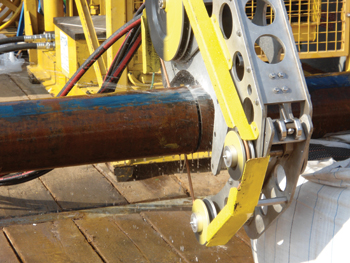
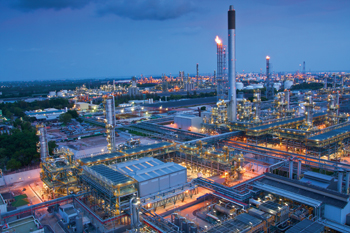
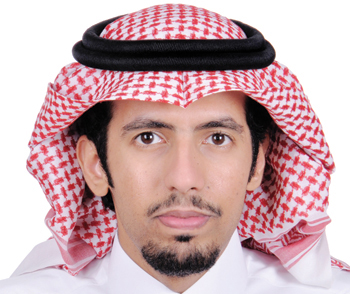
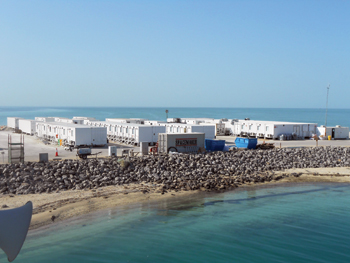
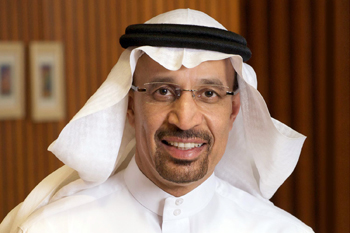

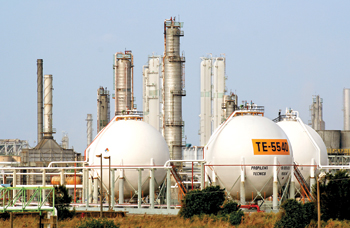
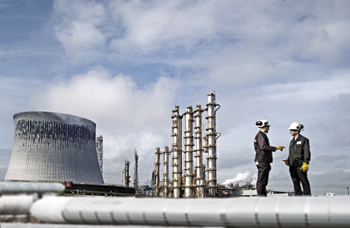
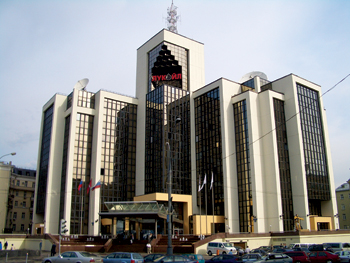
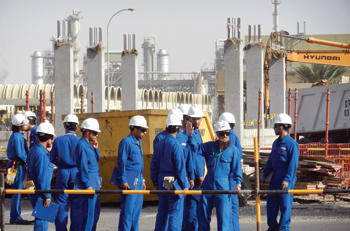


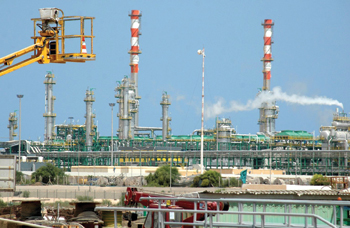

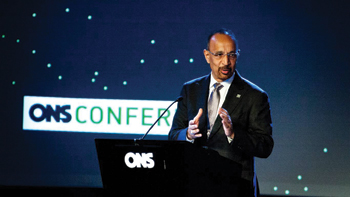
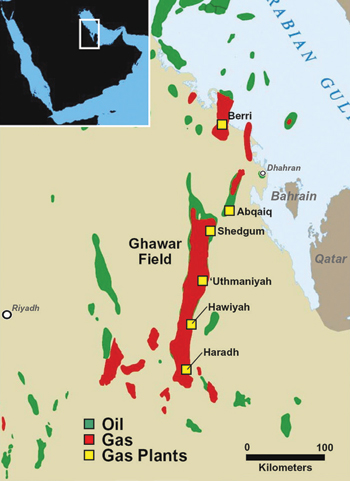
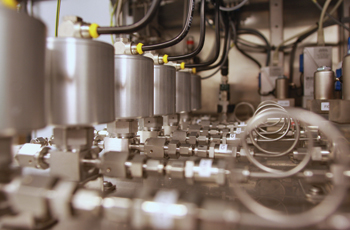
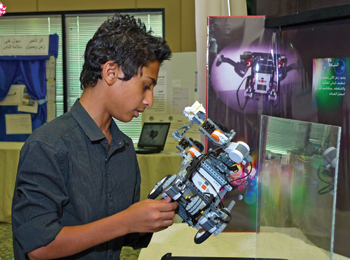


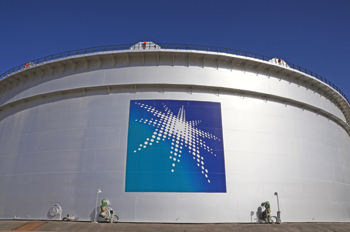
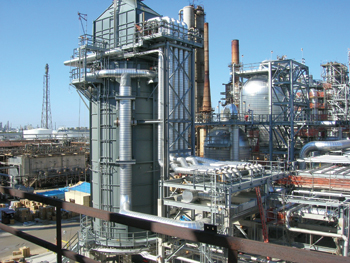
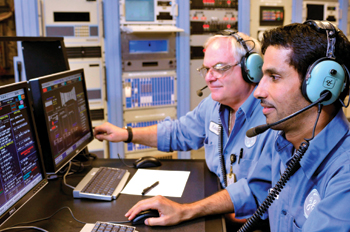
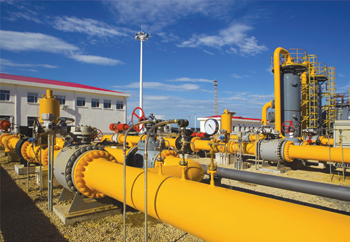
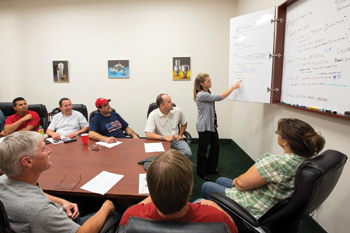
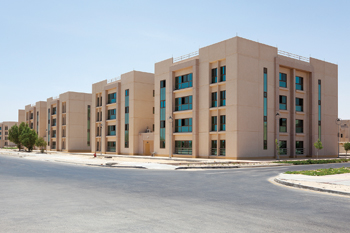
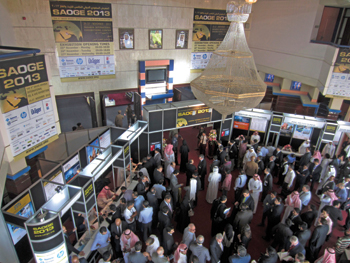
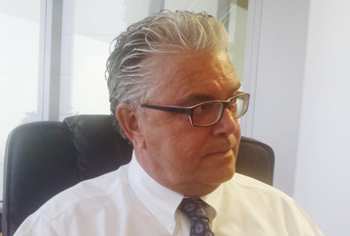
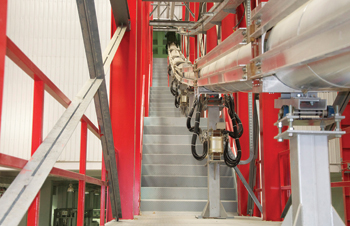
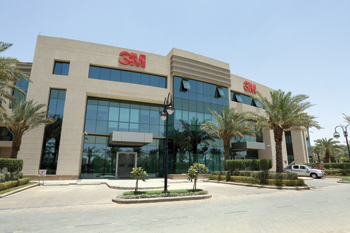
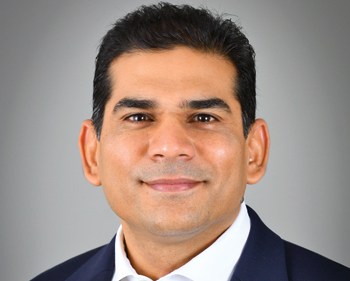
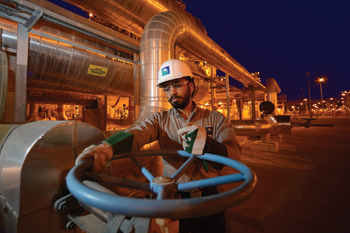
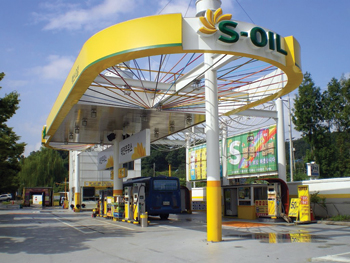
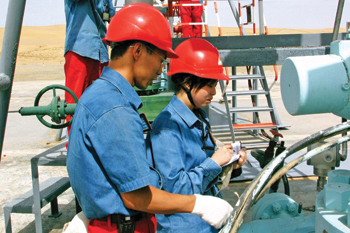
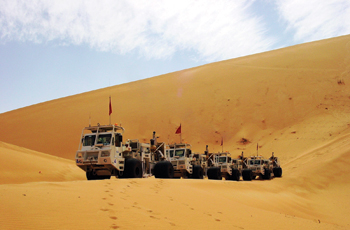


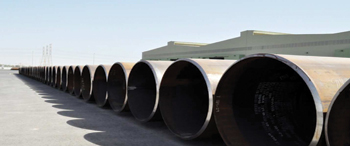
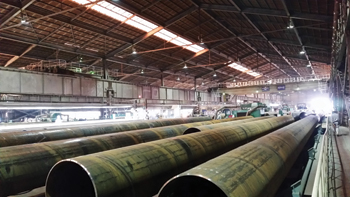

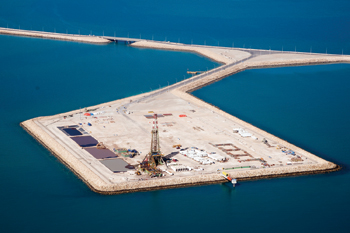
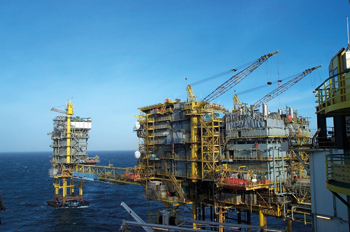
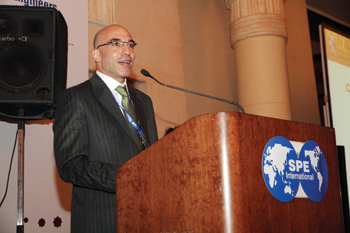
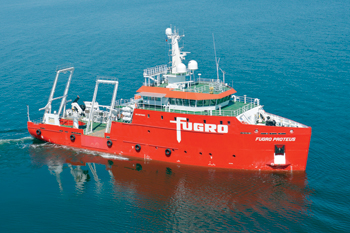
-(3).jpg)
